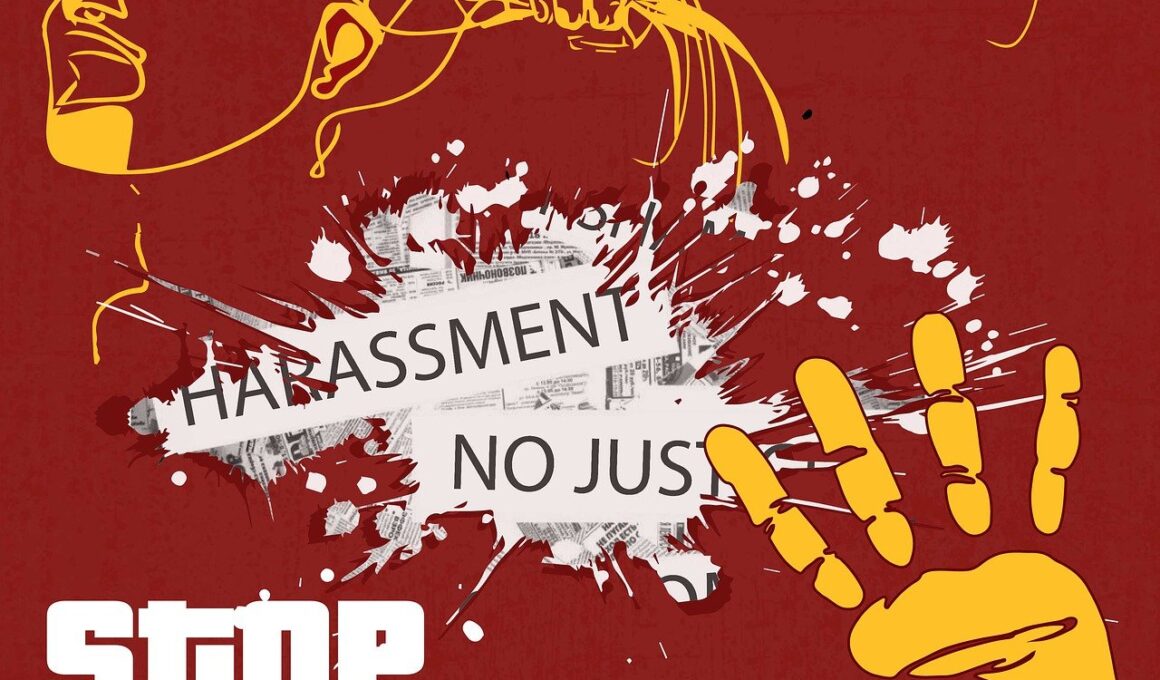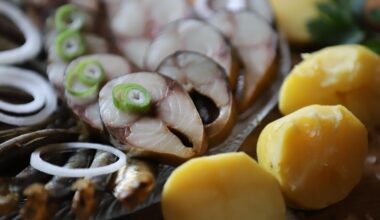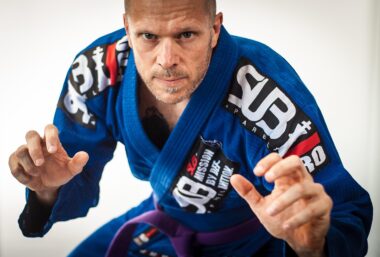Women and Jujutsu: Empowerment Through Martial Arts
Across the globe, women are increasingly embracing jujutsu, a martial art with deep roots and rich traditions. This discipline prioritizes leverage and technique over brute strength, making it accessible for women. Jujutsu teaches various techniques for self-defense, including joint locks and throws. Many women find empowerment through mastering these skills, which enhance their confidence and self-esteem. Engaging in jujutsu not only improves physical fitness but also fosters a sense of community and support among female practitioners. Women training in jujutsu become part of a bond that extends beyond the dojo. They share experiences, challenges, and victories, creating a transformative atmosphere. This supportive environment diminishes feelings of isolation, connecting women with others who share similar goals. Furthermore, jujutsu classes serve as safe spaces for women to explore their identity and personal boundaries. The discipline encourages resilience and mental fortitude, essential traits that empower women in everyday life. This art form can serve as a profound tool for personal growth and self-discovery, enhancing the quality of life in numerous aspects. Women discovering jujutsu often find it a source of lifelong learning and empowerment.
As women delve further into jujutsu, they often discover a sense of empowerment beyond physical self-defense. This martial art promotes mental strength, discipline, and respect for oneself and others. Practicing jujutsu helps build resilience, teaching women to embrace challenges and confront adversities head-on. In a world where women face various challenges, such skill-building becomes invaluable. Self-defense in jujutsu is not purely about physical confrontations; it also instills a mindset of awareness and caution. Women become more attuned to their surroundings, which is vital in ensuring personal safety. Through sparring and practice, female practitioners learn to read body language and anticipate movements. This heightened awareness spills over into daily life, enhancing decision-making skills and promoting proactive behavior. Additionally, the community forged within jujutsu classes encourages mentorship and camaraderie among women. Together, they motivate and uplift each other, reinforcing the idea that empowerment is within reach. Jujutsu transcends mere physicality, allowing women to cultivate their inner strength. This holistic empowerment can lead to greater assertiveness in various life situations, resulting in professional and personal success.
Building Confidence Through Jujutsu
Confidence is a crucial element in any self-defense program, and jujutsu excels in this area. Women practicing jujutsu frequently report significant improvements in their self-confidence over time. As they master techniques and overcome challenges within the dojo, a newfound assurance emerges. With each progressed skill, women witness their own capabilities, shattering old perceptions of limitations. The supportive atmosphere among practitioners fosters positive reinforcement, essential for building confidence. Encouragement from instructors and peers alike cultivates a culture of respect and empowerment. In every class, women are celebrated for their achievements, no matter how small. This acknowledgment builds a strong foundation for self-belief and personal growth. Furthermore, the challenges faced during training, such as learning complex techniques, refine problem-solving abilities. This newfound confidence often extends beyond the dojo into personal, academic, and professional arenas. Women become more assured in expressing their opinions, confronting challenges, and pursuing their goals. With every strike, throw, and submission, women are not just learning a martial art but transforming into empowered individuals who demand and deserve respect and equality.
Moreover, jujutsu serves as an excellent physical exercise that enhances overall health and wellness. Engaging in jujutsu training improves strength, flexibility, and cardiovascular endurance, which are crucial for maintaining an active lifestyle. This martial art offers a full-body workout that keeps practitioners engaged and motivated. Whether through rigorous drills or sparring sessions, dynamically moving the body builds physical capabilities over time. Health benefits extend beyond the physical; stress levels often decrease dramatically for women practicing jujutsu. The intense focus on technique promotes mental clarity, helping to alleviate anxiety and stress from daily life. The camaraderie experienced in classes also contributes to the reduction of stress, providing a social outlet. In essence, jujutsu training equips women with the tools to enhance their quality of life in numerous ways. The increased physical strength, agility, and mental resilience gained from continuous practice are invaluable assets. As women continue their jujutsu journey, they become equipped to tackle various challenges life throws at them, both on and off the mat. It’s this blend of mind and body that ultimately leads to holistic growth.
Jujutsu and Community Empowerment
Community is central to the experience of women in jujutsu; it creates an environment where they can thrive together. Joining a jujutsu class opens doors to forming friendships and connections that often last a lifetime. These relationships cultivate a strong sense of belonging, integral for many women. They find encouragement in knowing others share similar motivations and goals. Instructors often act as mentors, guiding women through both martial arts and personal challenges. This mentorship is especially important as it provides role models who inspire growth. Additionally, participation in competitions and events fosters camaraderie amongst practitioners. Women cheer for each other, creating a supportive environment during competition. Their efforts and achievements are celebrated, further promoting self-worth and confidence. Local jujutsu communities often engage in outreach programs, spreading empowerment beyond the dojo. Initiatives to provide self-defense classes to young women highlight the importance of safety and personal empowerment. By giving back to the community, female practitioners create a positive cycle of strength. More women are introduced to the benefits of martial arts, allowing for broader societal transformation.
Ultimately, the journey within jujutsu extends well beyond physical training; it transforms women’s lives. Jujutsu is deeply intertwined with personal growth, providing tools that help women thrive. These skills translate into various aspects of life, enhancing self-awareness and assertiveness. Women learn to embrace their identity while standing strong against adversity. As practitioners, they embody resilience, determination, and confidence, traits that inspire others. The empowerment experienced in the dojo encourages broader conversations about gender equality and women’s rights. Jujutsu fosters a culture of respect, discipline, and camaraderie, which can challenge societal norms. Through this martial art, women collectively advocate for safety and empowerment, seeking changes in how society views women in self-defense roles. With women taking up jujutsu, stereotypes of vulnerability are shattered, paving the way for empowerment narratives. Local jujutsu schools increasingly become safe havens where women can explore their strength and potential. As they grow personally and collectively, the ripple effect reaches outwards into the community. These individuals redefine what it means to be empowered, leading more women toward martial arts and self-defense.
The Future of Women in Jujutsu
Looking ahead, the future of women in jujutsu appears promising and dynamic. As more women embrace this martial art, we expect greater visibility and representation within the community. It is crucial for future generations of women to see their potential in these roles. Increased female participation in leadership positions within jujutsu organizations ensures that women’s voices and experiences shape programs tailored to their needs. This development can lead to innovative classes focused on the unique challenges women face in self-defense. Furthermore, collaborations with local women’s groups could create initiatives aimed at empowering women through martial arts. Events dedicated to raising awareness about women’s safety and self-defense can help reach broader audiences. It’s essential for this movement to continue fostering a supportive culture where empowerment thrives. Workshops focused on mental health and wellness paired with jujutsu training will encourage more women to join. As jujutsu becomes a beacon of hope and empowerment for women, we will likely see a transformation in minds and attitudes towards female self-defense globally. The evolution of women in jujutsu highlights endless possibilities for empowerment through martial arts.
In summary, women engaging in jujutsu find a unique blend of empowerment, community, and personal growth. The journey offers them strength not only physically but mentally and emotionally. As this martial art continues to flourish amongst women, it is vital that communities support and promote these initiatives. By creating opportunities for women to learn and grow within martial arts, societies contribute to broader movements advocating for gender equality and respect. Building confidence through training equips women with invaluable skills they can carry into various aspects of life. Jujutsu remains an exciting pathway for connection, resilience, and empowerment as they navigate their lives. The relationships formed within the dojo play a crucial role in this journey, providing ongoing support and encouragement. As communities rally behind these women, they inspire future generations to embrace martial arts as a means of self-empowerment. Through jujutsu, women not only learn self-defense but also redefine societal narratives surrounding strength and femininity, ensuring designed pathways towards empowerment. The continued evolution of women in jujutsu reflects a larger societal change, advocating for spaces where women can thrive and inspire.





